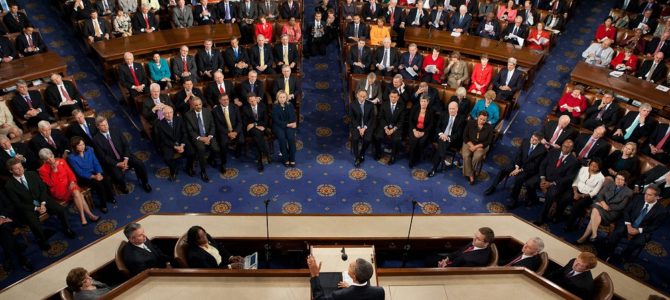
It appears that intellectual poverty is no barrier to publication in The New York Times opinion page, if the ideas being expressed put a tingle in leftists’ spines. A recent case in point is an article by Meagan Day and Bhaskar Sunkara entitled, “Think the Constitution Will Save Us? Think Again.”
Day and Sunkara argue, or rather assert without properly arguing, that the Constitution is “an outdated relic” that “serves as the foundation for a system of government that rules over people, rather than an evolving tool for popular self-government.” This is ostensibly because “the subversion of democracy was the explicit intent of the Constitution’s framers.”
They go on to note that “conservative business elites” like President Trump revere the Constitution because it empowers them to prevent government from redistributing their wealth and guaranteeing the interests of working people. Instead of our “byzantine” Constitution, they claim that our ideal should be “a strong federal government powered by a proportionally elected unicameral legislature.”
Day and Sunkara’s analysis is so shallow that it’s hard to know where to begin. Perhaps the best place to start is with the one thing they got right: subverting democracy was the explicit intent of the Constitution’s framers. But they fail to address what James Madison meant by “democracy” in Federalist 10, and why he and the other Founders wanted to subvert it.
Madison argued for a republic over a democracy, by which he meant essentially a representative democracy over a pure democracy. The reason for this is the same as the reason for all the “byzantine” aspects of the Constitution: preventing tyranny.
Tyranny can take numerous forms, but it always boils down to the person or people with power ruling for their own benefit, rather than for the benefit of those whom they rule. Whether a people is ruled by one, or few, or many, virtue demands that the rulers rule for the benefit of the ruled.
But it’s a rare bird indeed who will do so freely. Unless they’re forced to do otherwise, the powerful will tend to abuse their power for their own benefit. That is true of the absolute monarch, the elitist oligarch, and, as Madison and the other Founders knew, of the mob.
Having recently succeeded in throwing off a monarchical tyranny, the Founders were not about to hand over unchecked power to the mob. But how to check power? The simple but ingenious answer was: with power. Power, said Madison in Federalist 51, will check power.
Under the Constitution, the monarchical power represented by the presidency is checked by the democratic power of the House of Representatives and the aristocratic power of the Senate, and vice versa. The power of the people in the House is checked by the power of the states in the Senate, and vice versa. And the executive power of the president and legislative power of the Congress are checked by the judicial power of the courts, and vice versa. All of this central governmental power is checked by the power of the people, embodied by the Constitution itself, and of the states, and vice versa.
These features are known to history as the separation of powers, checks and balances, and federalism. Collectively, they have done more for the promotion of liberty than any other earthly force in the history of the world.
They’ve been so successful and will never be outdated because they’re built on a proper understanding of human nature: people are not angels, so we cannot trust them with unfettered power. These features of the Constitution are arguably even more important than the Bill of Rights itself, for without checks to power the Bill of Rights wouldn’t be worth a quill pen.
So where Day and Sunkara blame the Constitution for the concentration of central governmental power, the opposite is actually the case. Much of the growth in federal power over the last century has come at the expense of the Constitution, through executive and judicial power grabs and faithless acquiescence by the once-supreme legislative branch.
Moreover, they cannot seem to decide whether the central government is too powerful, or not powerful enough. The government rules over the people, but big business is empowered against the government. So, which is it? Such elementary confusion is unworthy of a college classroom, to say nothing of The New York Times opinion page.
Day and Sunkara propose that we strive toward a federal government consisting of a proportionally elected unicameral legislature. That’s it. No federalism, no separation of powers, no power as a check to power. The minority in this system, whoever they may be at a given time, would have no protection from the majority. Ultimately, they would have no rights.
Day and Sunkara call their system “popular self-government.” Were their dream realized, history would know it to be just another tyranny.









